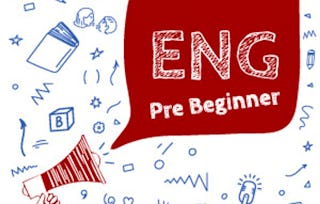Language Learning
New releases
 Status: PreviewPreviewU
Status: PreviewPreviewUUniversità di Napoli Federico II
Course
 Status: PreviewPreviewU
Status: PreviewPreviewUUniversità di Napoli Federico II
Course
 Status: PreviewPreviewU
Status: PreviewPreviewUUniversità di Napoli Federico II
Course
Most popular
 Status: Free TrialFree TrialG
Status: Free TrialFree TrialGGeorgia Institute of Technology
Specialization
 Status: PreviewPreviewY
Status: PreviewPreviewYYonsei University
Course
 Status: PreviewPreviewÉ
Status: PreviewPreviewÉÉcole Polytechnique
Course
 Status: PreviewPreviewY
Status: PreviewPreviewYYonsei University
Course
Frequently asked questions
Reading, writing, speaking, and listening are some of the core skills you can develop with Coursera’s language courses. You can also gain insights into cultural nuances, which are crucial for effective communication in any language. Whether you’re looking to advance in a language-related career or improve your language skills, these courses are designed to support and accelerate your professional growth.
No. Coursera is designed to guide learners at every stage—from beginners to specialists. Many of Coursera’s language courses are suitable for those with little to no prior experience. Introductory language courses focus on core topics like vocabulary, grammar, and pronunciation. Explore the course page to learn the specifics about the skills you’ll gain, the course difficulty, and any recommended preparation—so you can start at the level that best matches your language background.
The skills you build through Coursera’s language courses can open doors to careers in international business, tourism, translation, education, and diplomatic services. Designed with industry leaders like Google and Meta, these courses offer industry-relevant skills instrumental for roles in marketing, customer support, and cross-cultural consulting. You’ll be equipped with communication skills essential for multinational firms, international NGOs, and many roles requiring cultural proficiency.
Yes, language courses on Coursera—especially those from respected institutions like UPenn and Georgia Tech—are valued by employers. With these world-class courses, you’ll build on your communication skills essential in global business environments. Although not substitutes for formal exams like TOEFL or DELF, completing them demonstrates your dedication to personal and professional growth.
The best way to learn a language is through consistent practice in listening, speaking, reading, and writing. Coursera’s language courses offer structured lessons with interactive exercises and cultural context. Many learners upskill by conversing with native speakers, watching content in its original language, and using studying techniques like spaced repetition. Regular, focused practice, along with setting clear, SMART goals, is key to effectively building language skills over time.
Yes! Coursera offers language courses for free with audit options, with access to all videos and readings at no cost. Free versions typically exclude graded assignments, certificates of completion, and instructor feedback. For full course features, you’ll need to pay for each course or subscribe to Coursera Plus. Financial aid is available for eligible learners). Select the "Audit" option on a language course enrollment page to explore high-quality, free education.
Coursera offers a range of language learning programs, featuring Guided Projects for practical learning, comprehensive Courses with video lectures and assignments, Specializations to enhance your language knowledge, and Professional Certificates to elevate your career prospects. Degrees are also available, providing a flexible and cost-effective way to earn credentials from top universities.
More questions
¹ Median salary and job opening data are sourced from Lightcast™ Job Postings Report. Content Creator, Machine Learning Engineer and Salesforce Development Representative (1/1/2024 - 12/31/2024) All other job roles (7/1/2024 - 7/1/2025)